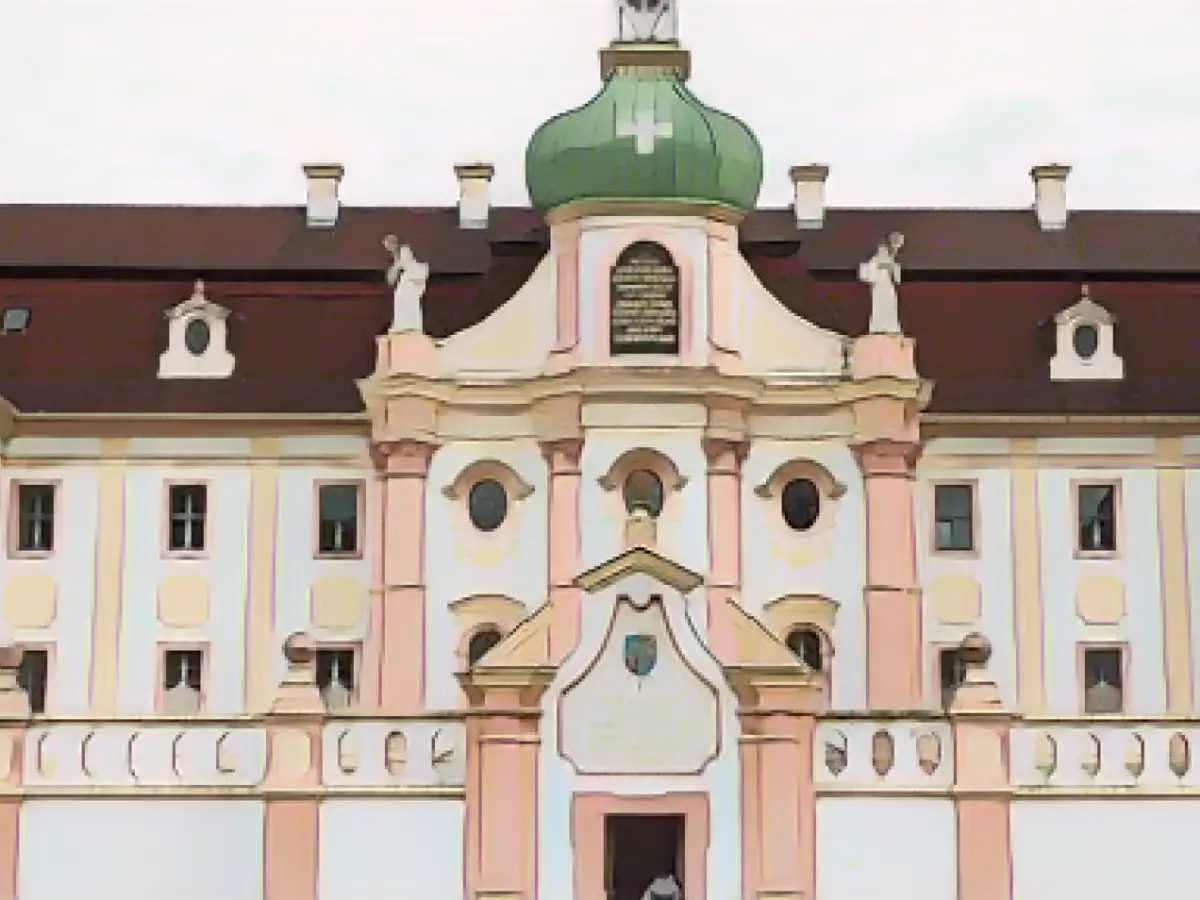Saxony Claims Legendary St. Marienthal Monastery Library for Future Generations
Embracing its cultural roots, Saxony has obtained the historic St. Marienthal monastery library in Ostritz, Görlitz district. The Saxon State Library - State and University Library (SLUB) excitedly announced on a recent Wednesday that the acquisition would secure this priceless Saxon heritage for posterity, scholarship, and public fascination. A purchase agreement between the Free State and the monastery established a 5.5 million euro price tag. Boosted by financial support from the Ernst von Siemens Art Foundation, the deal was made possible.
Celebrating Saxony's rich history and strategic preservation, Minister of Culture Barbara Klepsch (CDU) praised the purchase, stating, "The Saint Marienthal monastery library is of immense cultural-historical and scientific relevance to the Free State of Saxony. As the sanctuary of Christian foundations, it stands as a striking landmark in Saxony's storied past". The sale conversation stirred up a sense of urgency to safeguard this valuable cultural heritage for homeground reverence.
Martin Hoernes, Secretary General of the Ernst von Siemens Art Foundation echoed Klepsch's sentiment. Hoernes emphasized that "The purchase broadens the public's understanding of Saxony's early history." Since their inception in 1983, the foundation has sustained public collections by financing valuable art acquisitions.
Established in 1234, the Saint Marienthal monastery sits on the River Neisse and is the oldest surviving female branch of the Cistercian order monastery in Germany. The monastery's library, a hallmark of enduring significance, has experienced a myriad of growths since the late Middle Ages. The SLUB asserts that the library constitutes a vital resource for scholarship; it is an exceptional repository of monastic educational culture and historical sources.
Hoping to convey the library's historical importance amongst the public, the State Library will coordinate with Leipzig University Library's Manuscript Center to provide research support and public outreach. Future endeavors include a major exhibition featuring numerous items from the collection, set for 2025.
The historical library holds more than 2,700 titles spanning the 12th to 19th centuries, boasting medieval manuscripts, early prints, and historical documents. Upon procurement, the library transformed into the property of the Saxon State and University Library Dresden. The St. Marienthal Psalter, a 13th-century masterwork, shines as the crowning piece of the collection. Selected historical printed works will remain on loan within the monastery's baroque library hall.
Furthermore, investigating the acquisition's broader historical and cultural context yields several key insights. These enrichment insights add depth to our understanding of the significance of the library:
- Historical Significance: The library contains pivotal items from the Jesuit era and Napoleonic period. These items reveal the evolution of intellect and spirituality in the region over centuries.
- Cultural Heritage: Including valuable incunabula and early books, the library showcases aesthetically astounding and historically significant pieces that contribute to our knowledge of the Renaissance and early modern periods.
- Preservation Efforts: The transfer of library care to the Landesbibliothekszentrum Rheinland-Pfalz in 2022 prioritizes preservation, ensuring these valuable items remain accessible for research and public appraisal.
- Contextual Significance: The monastery's historical relationship with education and intellectual pursuits roots the library in local, regional, and global intellectual history. Preserving the library safeguards this cultural memory.
In closing, the acquisition and preservation of the St. Marienthal monastery library remain a multifaceted achievement in reaffirming Saxony's rich cultural heritage and intellectual legacy. As a priceless time capsule into the past, the library offers valuable insights into religion, arts, and knowledge development over several centuries.








